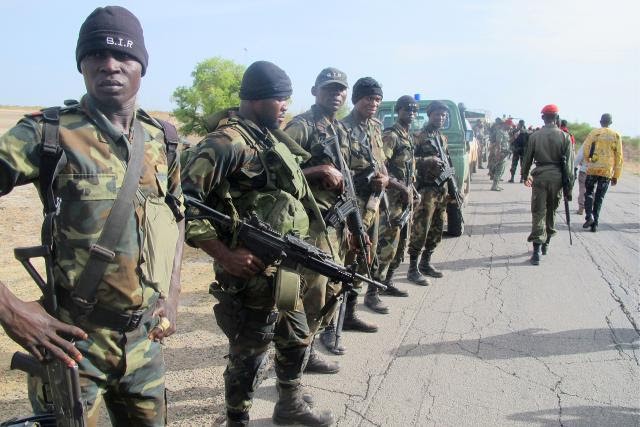 In recent weeks, Islamist militant group Boko Haram has seized control of several villages and towns in northeastern Nigeria along the Cameroonian border.
In recent weeks, Islamist militant group Boko Haram has seized control of several villages and towns in northeastern Nigeria along the Cameroonian border.
The group's transition from guerrilla-style attacks to a more conventional fight for territory is notable because a similar effort during the first half of 2013 ended poorly for the group after Abuja declared a state of emergency and reinforced the Joint Task Force in Nigeria's northeast. Though Boko Haram is not an existential threat to the Nigerian government, the group's continued success against the country's military could hurt the chances of Nigerian President Goodluck Jonathan and his People's Democratic Party at re-election in 2015.
The towns now under Boko Haram's control are mainly located along the length of the Mandara mountain range, which forms a geographic barrier along the northern portion of the Nigeria-Cameroon border. Boko Haram has been operating in this particular area already, conducting raids and seeking refuge across the border in Cameroon. Now, rather than raiding villages or destroying infrastructure and houses, Boko Haram has opted to plant its flag and claim control of the towns, declaring its own caliphate. These villages are of little importance to Abuja in terms of economic resources, concentration of population or political influence, but the Mandara Mountains' protective terrain could provide a haven from which Boko Haram could operate. The mountain range's proximity to the Cameroonian border only adds to the group's protection by securing the rear of its position against Nigerian military action; the Cameroonian military has so far refrained from operating across the border.
Boko Haram's ability to claim control over these towns — and even successfully beat back attempts by the Nigerian military to dislodge the militants from their positions — does not necessarily mean that the group would also be able to expand its territorial control beyond this area. If Boko Haram were to spread deeper into Nigeria's most northeastern states, the lack of protective terrain and the Nigerian military's ability to maneuver more freely and sustain its supply chains there could shift the balance against the group yet again. Boko Haram's attempts to secure territorial control may already be taking up a large portion of its efforts, given the significant decline in the group's tempo of suicide or car bombings over the past few months. The last major bombing took place in Kano on July 27, at the end of Ramadan.
A notable element of Boko Haram's recent success has been its ability to defeat the Nigerian military in pitched battles. Though Boko Haram has been able to inflict losses on the military in the past by staging ambushes or raids on its positions, the military typically has had the upper hand in conventional engagements. During the past few weeks, however, military units have been routed in fights with Boko Haram, and several units even fled across the Cameroonian border. Boko Haram has also managed to resist several offensive operations by the Nigerian military aimed at regaining territory. In several of these cases, the military forces claimed to have been forced to give up their positions because of a lack of supplies, particularly ammunition.
Although Boko Haram has managed to take towns such as Mubi (once the commercial center of Adamawa state) and Bama, with populations of around 150,000 and 250,000, respectively, most of the villages recently taken by the militants are of limited significance on their own. While it is possible that Boko Haram could threaten to take control of Borno state's capital, Maiduguri, from these positions, the city is likely much more resilient to such an attack because of its larger military presence, the existence of an air base that allows for the more efficient delivery of supplies, and its population of over 1 million people. Even if Boko Haram were somehow able to take control of Maiduguri, it still would not pose a strategic threat to Abuja.
Nevertheless, if the government proved unable to prevent such an event, it could harm Jonathan's bid for re-election by painting him as an irresponsibly weak commander in chief ahead of the presidential primaries in November and national elections in February. The military's Joint Task Force has been deployed to northeastern Nigeria for several years, and it received substantial reinforcements after Abuja's declaration of a state of emergency in May 2013. The Nigerian military's continued defeat at the hands of Boko Haram could put pressure on Jonathan, who has been reluctant to strengthen the army due to historically based fears of empowering the military. (In the past, Nigerian military officers who believed themselves better rulers than the elected civilians in power have occasionally taken matters into their own hands.) If Boko Haram continues to defeat the Nigerian military, opposition figures, including former military ruler Muhammadu Buhari of the All Progressives Congress, could benefit in the run-up to the presidential election.
Courtesy : Stratfor (www.stratfor.com)